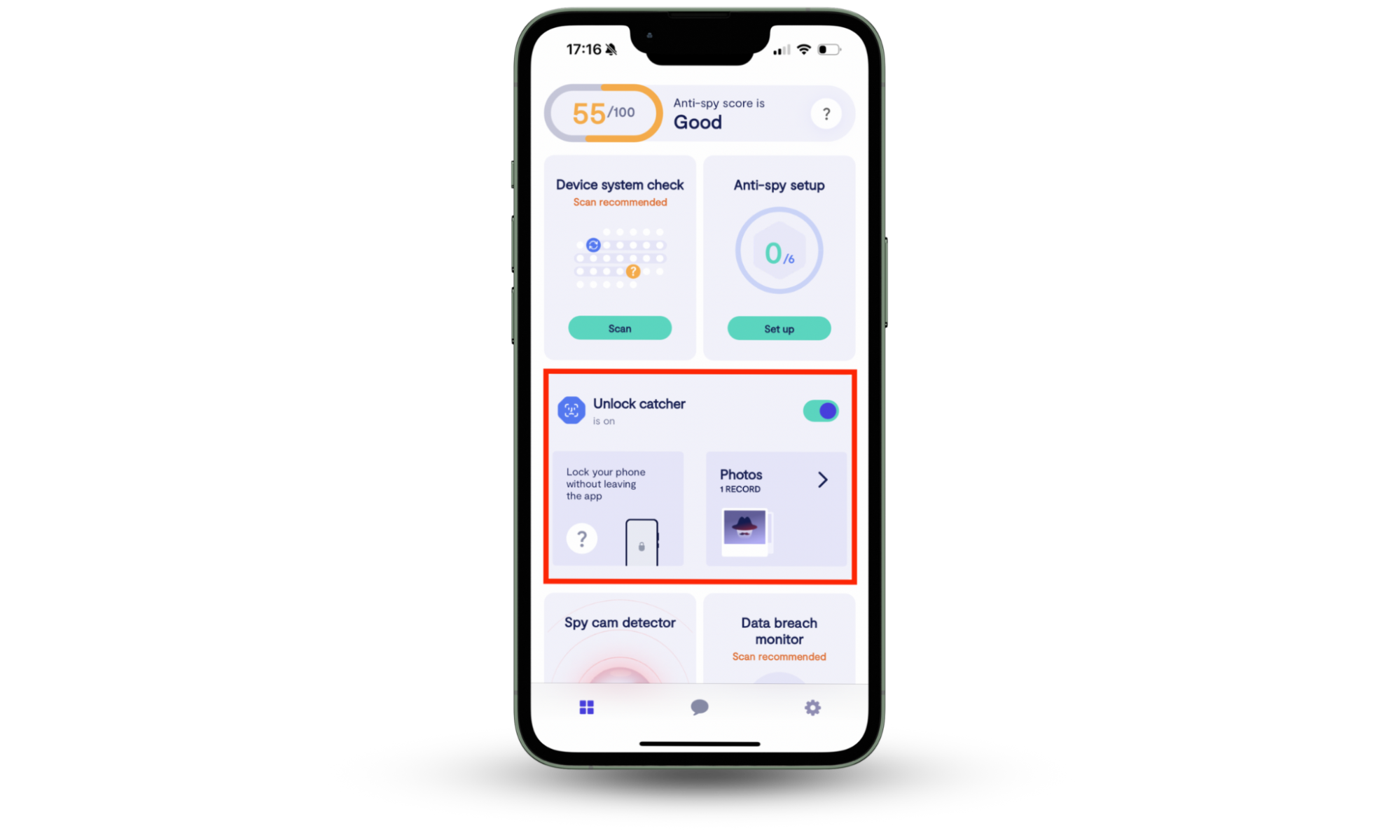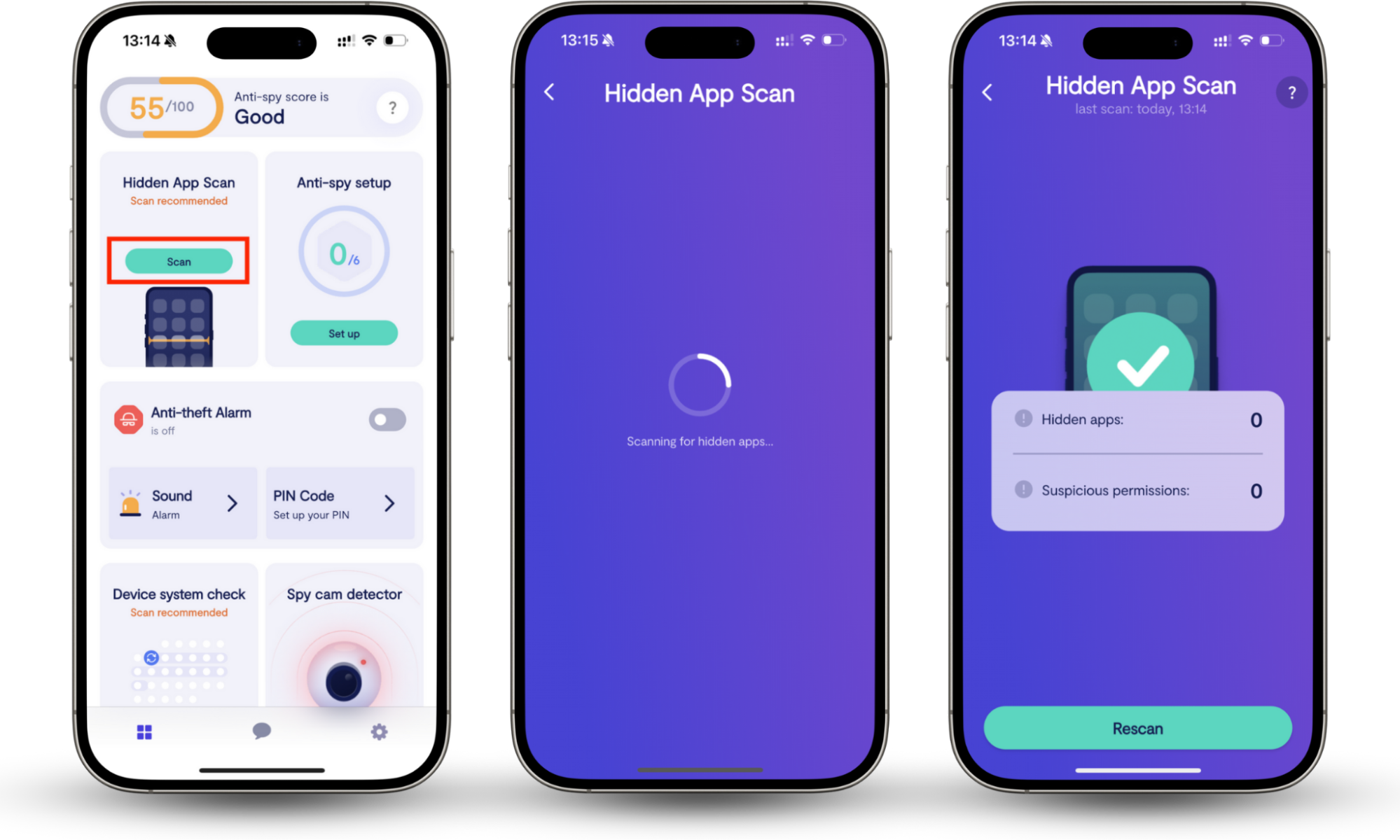Table of contents
- What is narcissistic abuse?
- Narcissistic abuse symptoms
- 1. Manipulative behaviors
- 2. Control and coercion
- 3. Emotional undermining
- 4. Love-bombing
- 5. Ignoring your boundaries
- 6. Blame shifting
- 7. Pretends to be victim
- Effects of narcissistic abuse on victims
- 1. Psychological effects
- 2. Cognitive and behavioral consequences
- 3. Physical health repercussions
- How to deal with narcissistic abuse
- Conclusion
What is narcissistic abuse?
Narcissistic abuse centers around psychological control. Your abuser tries to gain power over you by systematically undermining your confidence and making you question your own perceptions. Their primary goal is to isolate you and manipulate your emotions so they become the center of your world. In the end, it can often lead to violence.
Unfortunately, this type of abuse often leads to narcissistic stalking. Your abuser might start following you around, tracking your movements, and even install spyware on your device.
If you’re worried about someone installing hidden apps on your phone, use Clario Anti Spy’s Unlock catcher to catch them red-handed:
- Open Clario Anti Spy and make an account.
- Turn on the Unlock catcher. If anyone tries to open your device without your PIN code, Clario Anti Spy will take a photo of them.

If you think they might’ve already accessed your device and installed a spy app, use the Hidden apps scan on Android or iOS to find out:
- Download Clario Anti Spy, create an account, then open the app.
- Under Hidden apps scan, press Scan.
- Wait for the results, then go through the list and uninstall any suspicious apps that might be tracking your movements.

Narcissistic abuse symptoms
There are many signs of narcissistic abuse, including sneaky manipulative behavior, obvious attempts to control you, and constant put-downs that make you feel bad about yourself. Abusers use tactics like love-bombing and ignoring your boundaries to stay in charge. When you call them out, they’ll start blame shifting and even pretend to be the victim.
Here are some common narcissistic abuse examples:
1. Manipulative behaviors
Manipulative behaviors are sneaky tactics your partner uses to get their way. A common form of this is gaslighting, where they’ll deny something they said or did, making you question your own memory. Over time, these tactics can make you doubt your judgment, making it easier for them to control your decisions.
2. Control and coercion
An abuser’s main goal is to control you. At first, this can be hard to spot. They might use guilt trips to convince you to do things for them. Later, this can turn into more obvious control, where they try to manage your money and who you see, leaving you feeling trapped.
3. Emotional undermining
Constant put-downs and insults chip away at your self-esteem. An abusive partner might use a steady stream of harsh criticism to make you feel worthless, as breaking down your confidence makes you easier for them to manage.
4. Love-bombing
You may be showered with intense affection, making you feel like the most important person in the world. But soon after, your partner becomes cold and distant. This confusing pattern is a tactic they use to get you hooked on the “good times,” making it harder to leave.
5. Ignoring your boundaries
Setting a clear limit doesn’t seem to work, as they will repeatedly push past it. You might find them reading your private messages or pressuring you into things you aren’t comfortable with. When they ignore your “no,” it sends a clear message that your feelings don’t matter.
6. Blame shifting
Refusing to take responsibility is a key part of this abuse. If you bring up something your partner did to hurt you, they will twist the situation to make it your fault. This often results in you apologizing for things you didn’t even do.
7. Pretends to be victim
Playing the victim comes after they’ve blamed you for something. They will act like they are the ones who have been hurt, claiming your reasonable reaction is what’s unfair to them. This tactic leaves you feeling guilty and questioning your own judgment.
Effects of narcissistic abuse on victims
The constant stress and emotional manipulation of narcissistic abuse have serious consequences that go far beyond the relationship itself. The damage can affect a victim’s mental, emotional, and even physical health, often long after the abuse has stopped.
1. Psychological effects
Living in a background of constant stress, criticism, and confusion takes a huge toll on your mental health and personality. It’s common for victims to develop anxiety, depression, and a deep sense of worthlessness.
The ongoing emotional attacks can destroy your self-esteem, making you feel like you are flawed and unlovable. Many people also experience symptoms of C-PTSD (complex post-traumatic stress disorder), which includes feeling constantly on edge, having emotional flashbacks, and struggling with intense feelings of shame or guilt. This is sometimes called narcissistic abuse syndrome (NAS).
Over time, you can feel emotionally numb and disconnected, as if you’ve lost the person you used to be.
2. Cognitive and behavioral consequences
Narcissistic abuse changes how your brain thinks and acts. Because gaslighting makes you question your own reality, you might find it difficult to trust your own judgment or make simple decisions.
This constant second-guessing can become a habit that’s hard to break. Many people also withdraw from friends and family, either because the abuser has isolated them or because they feel too drained and ashamed to socialize.
To survive the abuse, you may have also developed people-pleasing habits, where you constantly put others’ needs before your own to avoid conflict.
3. Physical health repercussions
The long-term emotional strain often shows up in your physical health. It’s like having an abusive ex stalking you. Your body keeps a score of the stress, which can lead to a range of problems. Many victims suffer from insomnia, chronic fatigue, headaches, and stomach issues.
The high levels of the stress hormone, cortisol, can also weaken your immune system, making you more likely to get sick. It's your body’s way of showing that it's been in a constant state of high alert, and the exhaustion is real.
How to deal with narcissistic abuse
Dealing with abuse, whether it’s a parent or a marriage partner, starts with small, intentional actions focused on your well-being. Set firm boundaries, carefully manage contact with the abuser, rebuild your support system, and learn to trust yourself again. Remember to be patient and kind to yourself through this process.
Here’s what to do:
- Set and enforce firm boundaries. Your first line of defense is clear boundaries. For example, you can say, “I will not continue this conversation if you yell at me.” The most important part is to follow through. When they cross the line, end the conversation or leave the room.
- Limit or cut off contact. The most effective way to escape abuse is to stop the interactions. Going no contact means blocking them on your phone and social media and not responding at all. If you can’t go no contact because you have kids together or work with them, aim for as low contact as possible. And if you’re wondering, can a spouse be charged with stalking? The answer is YES.
- Build a strong support system and seek therapy. Narcissistic abuse is isolating. Reconnect with people who love and support you. Reach out to friends and family you might’ve lost touch with and let them know what’s been happening. It can also be really helpful to speak to a therapist who understands this form of abuse.
- Focus on self-care and rediscover yourself. The abuse probably took a huge toll on your mental and physical health. Make self-care a priority. Ensure you’re eating well, getting enough sleep, and finding healthy ways to manage stress. Maybe pick up an old hobby or try a new one. The goal is to reconnect with your own needs and interests.
- Rebuild trust in yourself and let go of blame. It’s common to blame yourself for the abuser’s behavior, but you have to remember the abuse was never your fault. A critical part of healing is accepting that you cannot fix or change them. Instead, try to learn to listen to your instincts and trust in your own judgement again.
Here’s a real-life example of how Clario Anti Spy helped a customer deal with a stalking partner.
When a customer suspected her partner was monitoring her phone, our support agent Karen provided immediate support. Karen guided her through using the Hidden apps scan, which quickly found a secret monitoring app. With our team’s help, she removed the threat, secured her accounts, and regained her sense of privacy.
If you’re worried this might be happening to you, here’s how to know if someone’s stalking you.
Conclusion
Healing from a narcissistic abuse cycle takes time, but taking the first steps is a brave act toward reclaiming your life. Remember that being abused was not your fault, and you have the strength to find peace and rediscover who you are.
As you work toward healing your emotional well-being, it’s just as crucial to secure your digital privacy. An abusive partner’s need to control can easily extend to your devices. Clario Anti Spy’s Unlock catcher shows you if someone tries to get into your phone, and the Hidden apps scan helps you find any tracking software they might install.


